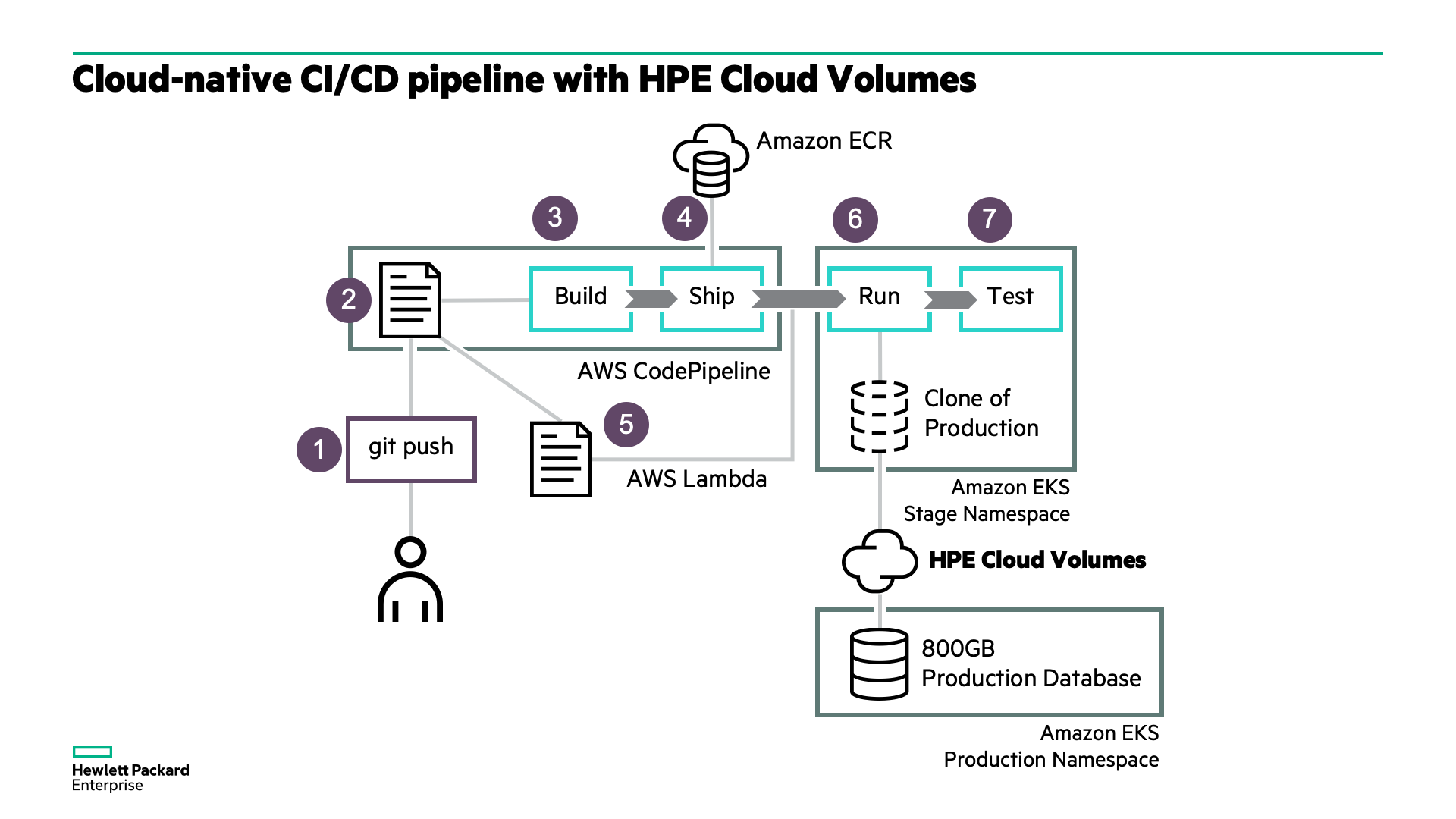- Community Home
- >
- Storage
- >
- Around the Storage Block
- >
- Cloud-native CI/CD pipelines with HPE Cloud Volume...
Categories
Company
Local Language
Forums
Discussions
Forums
- Data Protection and Retention
- Entry Storage Systems
- Legacy
- Midrange and Enterprise Storage
- Storage Networking
- HPE Nimble Storage
Discussions
Forums
Discussions
Discussions
Discussions
Forums
Discussions
Discussion Boards
Discussion Boards
Discussion Boards
Discussion Boards
- BladeSystem Infrastructure and Application Solutions
- Appliance Servers
- Alpha Servers
- BackOffice Products
- Internet Products
- HPE 9000 and HPE e3000 Servers
- Networking
- Netservers
- Secure OS Software for Linux
- Server Management (Insight Manager 7)
- Windows Server 2003
- Operating System - Tru64 Unix
- ProLiant Deployment and Provisioning
- Linux-Based Community / Regional
- Microsoft System Center Integration
Discussion Boards
Discussion Boards
Discussion Boards
Discussion Boards
Discussion Boards
Discussion Boards
Discussion Boards
Discussion Boards
Discussion Boards
Discussion Boards
Discussion Boards
Discussion Boards
Discussion Boards
Discussion Boards
Discussion Boards
Discussion Boards
Discussion Boards
Discussion Boards
Discussion Boards
Discussion Boards
Community
Resources
Forums
Blogs
- Subscribe to RSS Feed
- Mark as New
- Mark as Read
- Bookmark
- Receive email notifications
- Printer Friendly Page
- Report Inappropriate Content
Cloud-native CI/CD pipelines with HPE Cloud Volumes
In an era where it’s expected that everything you touch as a developer or ISV should be cloud-native – it’s not without a tad bit of pride we can showcase a HPE Nimble Storage product using nothing but 100% cloud-native tools and infrastructure.
During Amazon re:Invent and HPE Discover late last year we had put together a show floor demo of a CI/CD pipeline using only SaaS and IaaS available in the public cloud. As illustrated in the embedded diagram, the following services were used:
AWS CodePipeline to build our CI/CD pipeline.
AWS CodeCommit (step 2) for storing source code for our app.
AWS CodeBuild (step 3 and 4) to build and ship our app (in a container).
Amazon Elastic Container Registry (Amazon ECR) for storing our built app.
AWS Lambda (step 5 and 6) to deploy our app in a staging environment.
Runscope API Monitoring (step 7) for testing our app in the staging environment.
Slack for user notifications on build status.
Amazon Elastic Container Service for Kubernetes (Amazon EKS) where our prod and stage app runs.
HPE Cloud Volumes provides persistent storage to our app via Kubernetes.
The “app” is a bare-bone stateless REST API gateway in front of a randomly generated census database (source here). The database in itself is a 400GiB+ MariaDB instance running on EKS with a 2TiB Persistent Volume Claim (PVC). The PVC has been satisfied by the HPE Nimble Kube Storage Controller using the Container Provider for HPE Cloud Volumes. The “production” app runs in a separate namespace where it keeps filling with census data. When user pushes to AWS CodeCommit (step 1) the AWS CodePipeline kicks off. The relevant detail as how it pertains to HPE Cloud Volumes is that for each new build, an Ephemeral Clone gets created from the current state of the database that the app is then tested against. Any tests run on the Ephemeral Clone is discarded whenever the stage app is discarded or a new build comes in, whatever comes first. The production instance of the database is completely unaffected but the cloning operation and the clone itself is IOPS constrained to not consume resources from the parent.
The entire demo project as shown is built upon the example found through AWS Product Manager Chris Barclay as described in his blog post here. The example discussed are available in the aws-samples/aws-codesuite-demo on GitHub. While we made a few updates here and there for our demo that is specific to our circumstances, those update are sitting in a private branch and will be made available upon request.
Meanwhile on YouTube
So, without further ado, lets enjoy Speed DevOps Using Container Storage on HPE Cloud Volumes:
Please leave your feedback in the comments below or on YouTube. Let us know if you need help kickstarting your container projects, cloud-native or not, we got it all covered!
- Back to Blog
- Newer Article
- Older Article
- haniff on: High-performance, low-latency networks for edge an...
- StorageExperts on: Configure vSphere Metro Storage Cluster with HPE N...
- haniff on: Need for speed and efficiency from high performanc...
- haniff on: Efficient networking for HPE’s Alletra cloud-nativ...
- CalvinZito on: What’s new in HPE SimpliVity 4.1.0
- MichaelMattsson on: HPE CSI Driver for Kubernetes v1.4.0 with expanded...
- StorageExperts on: HPE Nimble Storage dHCI Intelligent 1-Click Update...
- ORielly on: Power Loss at the Edge? Protect Your Data with New...
- viraj h on: HPE Primera Storage celebrates one year!
- Ron Dharma on: Introducing Language Bindings for HPE SimpliVity R...



